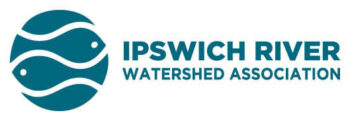
Clean water is important for so many reasons. Polluted water harms wildlife, impacts or prevents recreation and can result in illness through direct contact or consumption. Thankfully, the Ipswich River is no longer facing traditional single source pollution, like industrial discharges, known as point source. That does not mean that pollution is not present.
The main pollutant in our watershed is the polluted runoff caused by everyday living, called stormwater. On the one hand, this is great news as we have the tools and ability to mitigate and reduce stormwater pollution. However, it’s hard to point a finger at stormwater. Each of us can contribute to its accrual or reduction, and knowledge is key to which we choose. You can help keep the Ipswich River clean by knowing how to spot, stop and reduce stormwater pollution.
What falls under the umbrella of stormwater?
Trash and other non-organic* debris
Oil and other automobile fluids
Road salt
Chemicals (cleaning products, pesticides, non-organic* fertilizers)
and…Pet waste!
*Non-organic in this instance refers to manufactured materials
Yes, pet waste is considered stormwater! You might be wondering why–it’s natural, after all. While nature can certainly handle animal waste, dog and cat waste contains high levels of bacteria that is harmful to humans. If pet waste is not properly disposed of, this harmful bacteria makes its way into waterways and groundwater. Always properly pick up after pets, even in the woods or other open spaces, and never flush pet waste down the toilet.
What are common stormwater pollutants in our watershed?
Dog waste
Cigarette butts
Nip bottles and other alcohol containers
Plastic water bottles
Fertilizers
While the purpose of fertilizers is to make plants lush and healthy, when overused they add excessive amounts of phosphates and/or nitrates into waterways and ground-water, which can result in algae blooms. Even organic fertilizers, if used improperly, can be harmful. Before using fertilizer on your yard or garden, have the soil tested to see if more nutrients are needed. (Soil test kits are available at many hardware and home improvement stores.) Often, fertilizers are applied unnecessarily. Opt for organic fertilizer or compost, as they release nutrients more slowly, and never apply fertilizer when rain is predicted.
You can learn more about stormwater and how to prevent it in the newly updated Greenscapes Guide! Find it online here or come visit us at Riverbend to pick up a printed copy. Copies will also be available, for free, in Greenscapes Communities. Don’t know if your town is a member of the Greenscapes North Shore Coalition? Check out the list of members at greenscapes.org/members.
